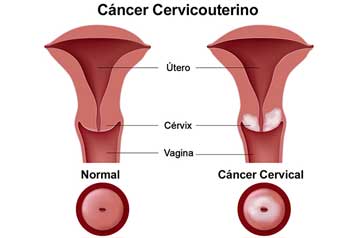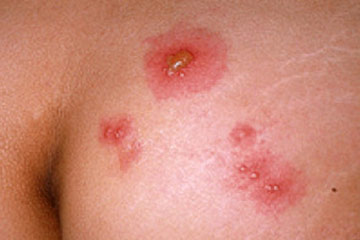Travelers' Health
Antimalarial Drug Information
Travelers to areas with malaria risk in Africa, South America, the Indian Subcontinent, Tajikistan, Asia, and the South Pacific should take one of the following antimalarial drugs (listed alphabetically):
- atovaquone/proguanil
- doxycycline
- mefloquine
- primaquine (in special circumstances).
Atovaquone/proguanil (brand name: Malarone ™)
Atovaquone/proguanil is a combination of two drugs, atovaquone plus proguanil, in one tablet. It is available in the United States as the brand name, Malarone.
Directions for Use
- The adult dosage is 1 adult tablet (250 atovaquone/100 mg proguanil) once a day.
- Take the first dose of atovaquone/proguanil 1 to 2 days before travel to the malaria-risk area.
- Take your dose once a day during travel in the malaria-risk area.
- Take your dose once a day for 7 days after leaving the malaria-risk area.
- Take your dose at the same time each day and take the pill with food or milk.
Side Effects and Warnings
The most common side effects reported by travelers taking atovaquone/proguanil are stomach pain, nausea, vomiting, and headache. Most people taking this drug do not have side effects serious enough to stop taking it; if you cannot tolerate atovaquone/proguanil, see your health care provider for a different antimalarial drug.
Travelers Who Should Not Take Atovaquone/Proguanil for Prophylaxis
The following travelers should not take atovaquone/proguanil to prevent malaria and should take a different antimalarial drug (see your health care provider):
- children weighing less than 11 pounds (5 kilograms) (Updated December 22, 2006)
- pregnant women
- women breast-feeding infants weighing less than 11 pounds (5 kilograms) (Updated December 22, 2006)
- patients with severe renal impairment
- patients allergic to atovaquone or proguanil.
Doxycycline (many brand names and generic drugs are available)
Doxycycline is related to the antibiotic tetracycline.
Directions for Use
- The adult dosage is 100mg once a day.
- Take the first dose 1 or 2 days before arrival in the malaria-risk area.
- Take your dose once a day, at the same time each day, while in the risk area.
- Take your dose once a day for 4 weeks after leaving the risk area.
Side Effects and Warnings
One of the most common side effects reported by travelers taking doxycycline include sun sensitivity (sunburning faster than normal). To prevent sunburn, avoid midday sun, wear a high SPF sunblock, long-sleeved shirts, long pants, and a hat.
Doxycycline may cause nausea and stomach pain. Take the drug on a full stomach with a full glass of liquid. Do not lie down for 1 hour after taking the drug to prevent reflux of the drug (backing up into the esophagus).
Women may develop a vaginal yeast infection on doxycycline. Treat vaginal discharge or itching with either an over-the-counter yeast medication or ask your health care provider for a prescription pill or cream.
Most people taking this drug do not have side effects serious enough to stop taking it; if you cannot tolerate doxycycline, see your health care provider. Other antimalarial drugs are available.
Travelers Who Should Not Take Doxycycline
The following travelers should not take doxycycline and should take a different antimalarial drug (see your health care provider):
- pregnant women
- children under the age of 8 years
- persons allergic to doxycycline or other tetracyclines
Mefloquine (brand name Lariam ™ and generic)
Directions for Use
- The adult dosage is 250 mg (one tablet) once a week.
- Take the first dose 1 week before arrival in the malaria-risk area.
- Take your dose once a week, on the same day of the week, while in the risk area.
- Take your dose once a week for 4 weeks after leaving the risk area.
- Take the drug on a full stomach with a full glass of liquid.
Side Effects and Warnings
The most common side effects reported by travelers taking mefloquine include headache, nausea, dizziness, difficulty sleeping, anxiety, vivid dreams, and visual disturbances. Mefloquine has rarely been reported to cause serious side effects, such as seizures, depression, and psychosis. These serious side effects are more frequent with the higher doses used to treat malaria; fewer occurred at the weekly doses used to prevent malaria.
Mefloquine is eliminated slowly by the body and thus may stay in the body for a while even after the drug is discontinued. Therefore, side effects caused by mefloquine may persist weeks to months after the drug has been stopped.
Most travelers taking mefloquine do not have side effects serious enough to stop taking the drug. (Other antimalarial drugs are available if you cannot tolerate mefloquine; see your health care provider.)
Travelers Who Should Not Take Mefloquine
The following travelers should not take mefloquine and should ask their health care provider for a different antimalarial drug:
- persons with active depression or a recent history of depression
- persons with a history of psychosis, generalized anxiety disorder, schizophrenia, or other major psychiatric disorder
- persons with a history of seizures (does not include the type of seizure caused by high fever in childhood)
- persons allergic to mefloquine
- Mefloquine is not recommended for persons with cardiac conduction abnormalities (for example, an irregular heartbeat).
Primaquine
In special situations when other antimalarial drugs cannot be taken and in consultation with malaria experts, primaquine may be used to prevent malaria while the traveler is in the malaria-risk area (primary prophylaxis).
Directions for Use
Note: Travelers must be tested for G6PD deficiency (glucose-6-phosphate dehydrogenase) and have a documented G6PD level in the normal range before primaquine use. Primaquine can cause an hemolysis (bursting of the red blood cells) in G6PD deficient persons, which can be fatal.
- The adult dosage is 2 tablets (30 mg base primaquine) once a day.
- Take the first dose 1-2 days before travel to the malaria-risk area.
- Take the dose once a day, at the same time each day, while in the risk area.
- Take the primaquine once a day for 7 days after leaving the risk area.
Side Effects and Warnings
The most common side effects reported by travelers taking primaquine include stomach cramps, nausea, and vomiting. The following travelers should not take primaquine and should ask their health care provider for a different drug:
- persons with G6PD deficiency
- persons who have not had a blood test for G6PD deficiency
- pregnant women (the fetus may be G6PD deficient, even if the mother's blood test is in the normal range) women breast-feeding infants unless the infant has a documented normal G6PD level
- persons allergic to primaquine
- Do not share primaquine with others; they may be G6PD deficient and suffer bursting of their red blood cells, which can be fatal.
Chloroquine phosphate (brand name Aralen ™ and generics)
Travelers to malaria-risk areas in Mexico, Haiti, the Dominican Republic, and certain countries in Central America, the Middle East, and Eastern Europe should take chloroquine as their antimalarial drug (Hydroxychloroquine sulfate is available as an alternative; see below).
Directions for Use
- The adult dose is 500 mg chloroquine phosphate once a week.
- Take the first dose of chloroquine 1 week before arrival in the malaria-risk area.
- Take your dose once a week, on the same day of the week, while in the risk area.
- Take your dose once a week for 4 weeks after leaving the risk area.
- Chloroquine should be taken on a full stomach to lessen the risk of nausea and stomach upset.
Side Effects and Warnings
The most common side effects reported by travelers taking chloroquine include nausea and vomiting, headache, dizziness, blurred vision, and itching. Chloroquine may worsen the symptoms of psoriasis. Most travelers taking chloroquine do not have side effects serious enough to stop taking the drug. Other antimalarial drugs are available; see your health care provider.
Note: In malaria-risk areas where chloroquine is the recommended drug but chloroquine cannot be taken, atovaquone/proguanil, doxycycline, mefloquine, or primaquine can be used as your antimalarial drug.
The following travelers should not take chloroquine and should ask their health care provider for a different drug:
- patients allergic to chloroquine
Hydroxychloroquine sulfate (brand name: Plaquenil ™)
Hydroxychloroquine sulfate is an alternative to chloroquine phosphate, although less evidence exists on its effectiveness as an antimalarial drug.
Directions for use
- The adult dosage is 400 mg once a week.
- Take the first dose 1 week before arrival in the malaria-risk area.
- Take your dose once a week, on the same day of the week, while in the risk area.
- Take the dose once a week for 4 weeks after leaving the risk area.
- Take hydroxychloroquine sulfate on a full stomach to lessen nausea and stomach upset.
Side Effects and Warnings
Nausea and vomiting, headache, dizziness, blurred vision, difficulty sleeping, and itching have been reported with hydroxychloroquine sulfate use. Minor side effects usually do not require stopping the drug. Hydroxychloroquine sulfate may worsen the symptoms of psoriasis. Other antimalarial drugs are available; see your health care provider.
Note: In malaria-risk areas where hydroxychloroquine sulfate is the recommended drug but hydroxychloroquine sulfate cannot be taken, atovaquone/proguanil, doxycycline, mefloquine, or primaquine can be used as your antimalarial drug.
Antimalarial Warnings and Instructions
- Take your antimalarial drug exactly on schedule. Missing or delaying doses may increase your risk of getting malaria.
- For the best protection against malaria, it is important to continue taking your drug as recommended after leaving the malaria-risk area (4 weeks for mefloquine, doxycycline, or chloroquine; 7 days for atovaquone/proguanil or primaquine). Otherwise, you can develop malaria.
- Overdosage (taking too much of an antimalarial drug) can be fatal. Keep drugs in childproof containers out of the reach of children to prevent accidental poisoning.
- Purchase your drugs before traveling overseas. Drugs purchased overseas may not be made according to United States standards and may not be effective. They may also be dangerous, contain the wrong drug or an incorrect amount of active drug, or be contaminated.
- Halofantrine (also called Halfan) is widely used overseas to treat malaria. CDC recommends that you do not take Halfan because of serious heart-related side effects, including deaths.
- You should avoid using antimalarial drugs that are not recommended unless you have been diagnosed with life-threatening malaria and no other treatment options are available.
- Most antimalarial drugs are well-tolerated; most travelers do not need to stop taking their drug because of side effects. However, if you are particularly concerned about side effects, discuss the possibility of starting your drug early (3-4 weeks in advance of your trip) with your health care provider. If you cannot tolerate the drug, ask your doctor to change your medication.
Si desea leer más artículos sobre el tema de Salud Viajero le recomendamos visitar las siguientes direcciones:
- SALUD VIAJERO INDICE
- Vaccinations and Travel
- Prevent Bites from Mosquitoes, Ticks
- Yellow Fever Vaccine
Source
centers for Disease Control and Prevention
National center for Infectious Diseases, Division of Global Migration and Quarantine
http://www.cdc.gov/






